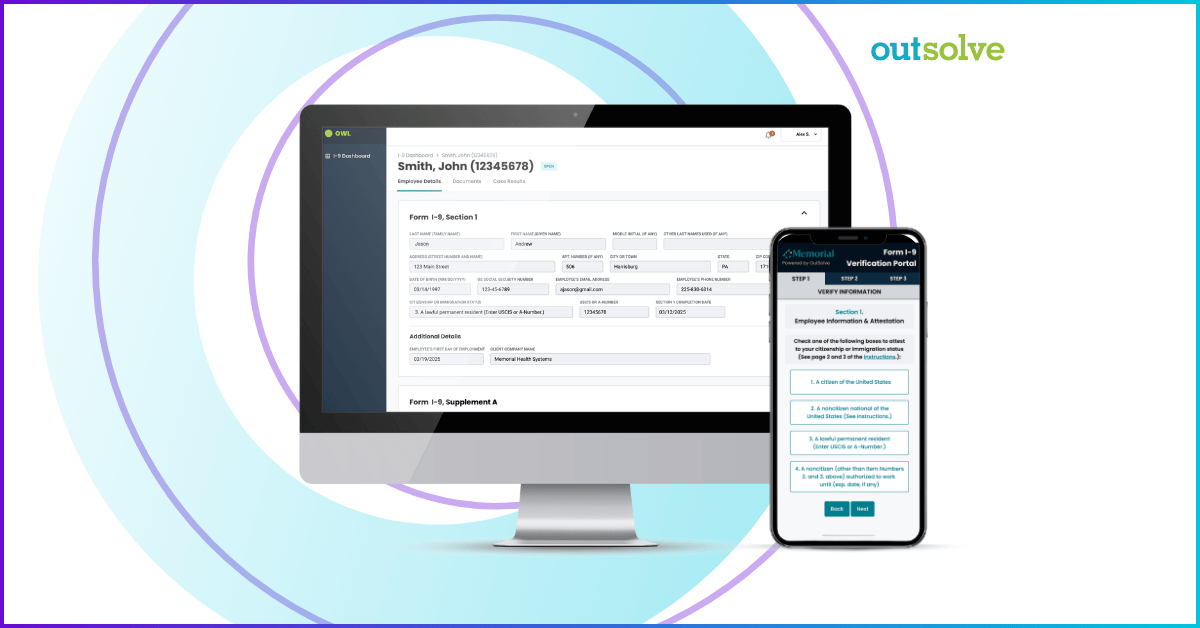 Common Mistakes Employers Make in Pay Equity Audits
This article is part of an ongoing legal series designed to provide insight and practical guidance on current and emerging workplace compliance...
OutSolve
Jan 27, 2026 1:07:17 PM
Common Mistakes Employers Make in Pay Equity Audits
This article is part of an ongoing legal series designed to provide insight and practical guidance on current and emerging workplace compliance...
OutSolve
Jan 27, 2026 1:07:17 PM
This article is part of an ongoing legal series designed to provide insight and practical guidance on current and emerging workplace compliance issues. These insights shared by lawyers are based on their interpretation of existing regulations and proposed changes, and intended for informational purposes, not to be regarded as legal advice.
OutSolve Common Mistakes Employers Make in Pay Equity Audits New York City Pay Equity Report: What it Entails
The New York City Council voted to pass an amendment in December 2025 requiring private employers to report pay data annually. This legislation also...
Neil Dickinson
Jan 8, 2026 1:30:39 PM
New York City Pay Equity Report: What it Entails
The New York City Council voted to pass an amendment in December 2025 requiring private employers to report pay data annually. This legislation also...
Neil Dickinson
Jan 8, 2026 1:30:39 PM
The New York City Council voted to pass an amendment in December 2025 requiring private employers to report pay data annually. This legislation also requires a designated NYC Agency to publish an aggregated employer pay data report. This move solidifies the report as one of the strongest local effects yet to address wage disparities based on race, gender, and ethnicity.
It’s important to remember that this isn’t happening in a vacuum. Over the past few years, states like California and Illinois have introduced similar reporting rules, driving pay transparency from an ethical best practice into a legal requirement. The new NYC pay equity law is the latest, and arguably the most visible, signal that the practice of silent salary structures is coming to a close.
Here's What You'll Learn
{% module_block module "widget_e89e11bb-c740-46c7-b809-143636303896" %}{% module_attribute "child_css" is_json="true" %}{}{% end_module_attribute %}{% module_attribute "col_1" is_json="true" %}{% raw %}{"animation":{"delay":"none","rellax_speed":1,"reps":"none","speed":"none","type":"none"},"content":[{"bp_font_size":14,"submit_alt":false,"bullet":["What the NYC Reporting mandate requires and who is covered.","Timeline for implementation.","How HR can proactively prepare for the new law. "],"heading":"Gradient Heading","custom_bullet_style":true,"form":{"message":"Thanks for submitting the form.","response_type":"inline"},"keep_open":false,"gradient_angle":"90deg","animation":{"delay":"none","rellax_speed":1,"reps":"none","speed":"none","type":"none"},"form_help_privacy":{"color":null,"css":"","hex":null,"opacity":null,"rgb":null,"rgba":null},"drop_middle":false,"bullet_point_icon":{"icon_set":"fontawesome-6.4.2","name":"Circle Check","type":"SOLID","unicode":"f058"},"link_opts":{"link":{"no_follow":false,"open_in_new_tab":false,"rel":"","sponsored":false,"url":{"content_id":null,"href":"","href_with_scheme":"","type":"EXTERNAL"},"user_generated_content":false}},"rotation_speed":4,"gradient_color_1":{"color":"#FF00FF","css":"#FF00FF","hex":"#FF00FF","opacity":100,"rgb":"rgb(255, 0, 255)","rgba":"rgba(255, 0, 255, 1)"},"rotating_text_style":"h1","icon_size":18,"gradient_color_2":{"color":"#0600FF","css":"#0600FF","hex":"#0600FF","opacity":100,"rgb":"rgb(6, 0, 255)","rgba":"rgba(6, 0, 255, 1)"},"custom_form_label_colors":false,"lottie_unique_id":"lottie-01","accordions":[],"icon_style":{"color":{"color":null,"css":"","hex":null,"opacity":null,"rgb":null,"rgba":null},"custom_color":false,"size":25},"drop_end":false,"make_link":false,"use_custom_color":false,"dropshadow":{"blur_radius":5,"color":{"color":"#000000","css":"rgba(0, 0, 0, 20%)","hex":"#000000","opacity":20,"rgb":"rgb(0, 0, 0)","rgba":"rgba(0, 0, 0, 0.2)"},"horizontal_length":0,"spread":0,"vertical_length":0},"custom_divider_color":{"color":null,"css":"","hex":null,"opacity":null,"rgb":null,"rgba":null},"rich_text":" Neil Dickinson New York City Pay Equity Report: What it Entails Pay Equity Check-Up: Why Q4 is the Time to Close Gaps
As the fourth quarter rolls around and HR professionals begin prepping for performance reviews, compensation planning, and end of year reporting, be...
Neil Dickinson
Oct 22, 2025 12:16:51 PM
Pay Equity Check-Up: Why Q4 is the Time to Close Gaps
As the fourth quarter rolls around and HR professionals begin prepping for performance reviews, compensation planning, and end of year reporting, be...
Neil Dickinson
Oct 22, 2025 12:16:51 PM
As the fourth quarter rolls around and HR professionals begin prepping for performance reviews, compensation planning, and end of year reporting, be sure to save a spot on your planning and strategic checklist for a pay equity check-up.
Neil Dickinson Pay Equity Check-Up: Why Q4 is the Time to Close Gaps Internal Equity vs. External Equity: What’s the Difference
When it comes to employment practices and conditions, fairness truly is a business imperative. As HR professionals, we know that compensation can...
Nick Jones
Sep 30, 2025 1:01:31 PM
Internal Equity vs. External Equity: What’s the Difference
When it comes to employment practices and conditions, fairness truly is a business imperative. As HR professionals, we know that compensation can...
Nick Jones
Sep 30, 2025 1:01:31 PM
When it comes to employment practices and conditions, fairness truly is a business imperative. As HR professionals, we know that compensation can make or break employee engagement, retention, and even your employer brand.
Nick Jones Internal Equity vs. External Equity: What’s the Difference Choosing the Right Partner for Compensation Strategy and Pay Equity
Think of your compensation strategy as the blueprint for pay. It defines how your organization sets, manages, and explains compensation. This...
Neil Dickinson
Aug 22, 2025 8:37:15 AM
Choosing the Right Partner for Compensation Strategy and Pay Equity
Think of your compensation strategy as the blueprint for pay. It defines how your organization sets, manages, and explains compensation. This...
Neil Dickinson
Aug 22, 2025 8:37:15 AM
Think of your compensation strategy as the blueprint for pay. It defines how your organization sets, manages, and explains compensation. This includes base pay, bonuses, benefits, raises, and the reasoning behind each. A strong strategy ensures pay is competitive, consistent, and aligns with business goals and employee expectations.
Neil Dickinson Choosing the Right Partner for Compensation Strategy and Pay Equity Pay Discrimination Explained: How It Affects Your Business
Human Resources (HR) spends a good amount of time supporting and promoting fairness in the workplace, whether it's in hiring, promotions, performance...
Nick Jones
Jul 24, 2025 10:17:15 AM
Pay Discrimination Explained: How It Affects Your Business
Human Resources (HR) spends a good amount of time supporting and promoting fairness in the workplace, whether it's in hiring, promotions, performance...
Nick Jones
Jul 24, 2025 10:17:15 AM
Human Resources (HR) spends a good amount of time supporting and promoting fairness in the workplace, whether it's in hiring, promotions, performance reviews, or compensation. Even with the best intentions, one issue continues to create risk, resentment, and regulatory issues. What is it? That’s pay discrimination.
Nick Jones Pay Discrimination Explained: How It Affects Your Business 5 Strategic Benefits of Pay Equity Compliance
Today’s job market is fiercely competitive. Top candidates often have options when it comes to job offers and employers. That’s where it pays to have...
Neil Dickinson
Jul 17, 2025 9:30:00 AM
5 Strategic Benefits of Pay Equity Compliance
Today’s job market is fiercely competitive. Top candidates often have options when it comes to job offers and employers. That’s where it pays to have...
Neil Dickinson
Jul 17, 2025 9:30:00 AM
Today’s job market is fiercely competitive. Top candidates often have options when it comes to job offers and employers. That’s where it pays to have a competitive compensation structure, so your organization will stand out as an employer of choice for top candidates.
Neil Dickinson 5 Strategic Benefits of Pay Equity Compliance Pay Equity vs Pay Equality: What’s the Difference and Why It Matters
If you find yourself using the terms pay equity and pay equality interchangeably, then you’re not alone. Even experienced HR professionals can blur...
Nick Jones
Jul 11, 2025 11:16:31 AM
Pay Equity vs Pay Equality: What’s the Difference and Why It Matters
If you find yourself using the terms pay equity and pay equality interchangeably, then you’re not alone. Even experienced HR professionals can blur...
Nick Jones
Jul 11, 2025 11:16:31 AM
If you find yourself using the terms pay equity and pay equality interchangeably, then you’re not alone. Even experienced HR professionals can blur the lines between the two. At first glance, they sound like two ways of referencing fair pay. In reality, pay equity and pay equality represent two distinct, yet equally important concepts. Each concept has its own implications for legal compliance, employee engagement, and company reputation.
Nick Jones Pay Equity vs Pay Equality: What’s the Difference and Why It Matters Pay Equity Consultant vs. Pay Equity Software: What’s Best for You?
Choosing Between a Pay Equity Consultant and Pay Equity Software: What’s Right for Your Business? Your internal pay equity audit just flagged a wage...
Neil Dickinson
Jul 9, 2025 4:32:14 PM
Pay Equity Consultant vs. Pay Equity Software: What’s Best for You?
Choosing Between a Pay Equity Consultant and Pay Equity Software: What’s Right for Your Business? Your internal pay equity audit just flagged a wage...
Neil Dickinson
Jul 9, 2025 4:32:14 PM
Choosing Between a Pay Equity Consultant and Pay Equity Software: What’s Right for Your Business?
Your internal pay equity audit just flagged a wage gap. Now what? Do you trust a software platform to sort it out for you, or do you bring in a consultant who knows the terrain?
Neil Dickinson Pay Equity Consultant vs. Pay Equity Software: What’s Best for You? How to Conduct a Pay Equity Audit Without Creating Legal Exposure
This article is part of an ongoing legal series designed to provide insight and practical guidance on current and emerging workplace compliance...
OutSolve
Jun 16, 2025 3:39:00 PM
How to Conduct a Pay Equity Audit Without Creating Legal Exposure
This article is part of an ongoing legal series designed to provide insight and practical guidance on current and emerging workplace compliance...
OutSolve
Jun 16, 2025 3:39:00 PM
This article is part of an ongoing legal series designed to provide insight and practical guidance on current and emerging workplace compliance issues. These insights shared by lawyers are based on their interpretation of existing regulations and proposed changes, and intended for informational purposes, not to be regarded as legal advice.
OutSolve How to Conduct a Pay Equity Audit Without Creating Legal ExposureNeed More Help? Contact OutSolve.
We offer HR compliance, anti-discrimination, and fair pay solutions.


.png)



